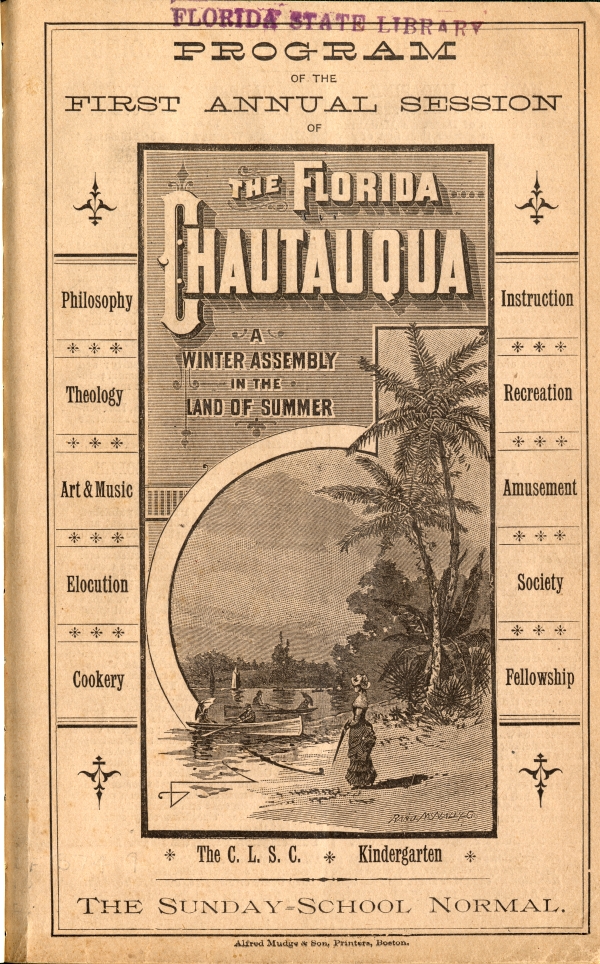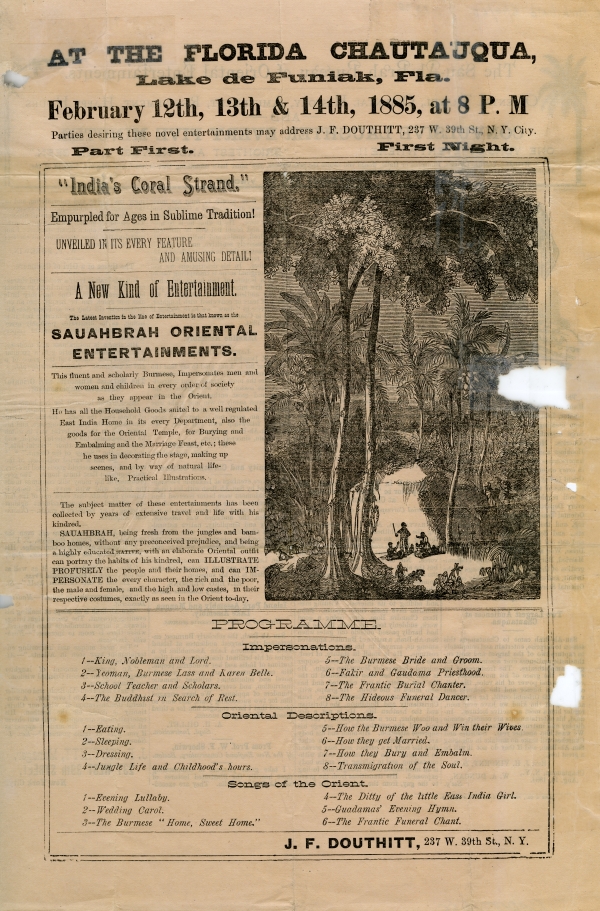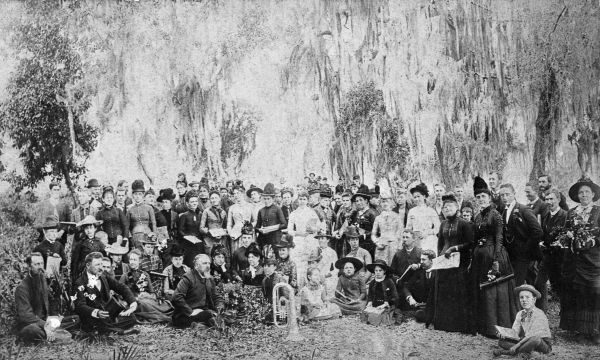Description of previous item
Description of next item
Chautauqua in Florida
Published October 10, 2014 by Florida Memory
What do you do if it’s 1902 and you’re dying to know something about this Panama Canal everyone keeps talking about? Or maybe you want to hear some good music, something better than that small-town band you’ve heard a hundred times this year already. Maybe you’ve been wondering what it’s like on the other side of the Earth, or how electricity works, or the latest theories about those atom thingies.
Your options in 1902 would be limited. Most of our present-day methods for satisfying the desire for information and entertainment simply didn’t exist at that time. There was, however, an institution that aimed to bring the world to the public in the form of a traveling show. They called it “Chautauqua.”
Chautauqua was a nationwide adult education movement popular in the late 19th and early 20th centuries. It was named for the small town in western New York where the concept originated. Orators, musicians, actors, and other performers traveled around the country in circuits, putting on shows in large cities and small towns alike. They stayed from a few days to a few weeks depending on the gate receipts and the enthusiasm of the crowd.
The shows usually featured a combination of singing, orchestral music, lectures and “elocution,” comedy, and inspirational speeches. Sometimes the speakers would illustrate their talks with lantern slides, creating the closest experience to world travel many Chautauqua attendees would ever have. Local arrangement committees usually contracted with a Chautauqua management company to schedule the show, which would then be heavily advertised through newspapers and handbills.
Traveling Chautauquas were generally held in large tents set up on the outskirts of town, but the institution became so popular in some Florida communities that local citizens raised funds to build permanent auditoriums for holding the events. Lakeland, Arcadia, Mt. Dora, and DeFuniak Springs are a few examples. As Chautauqua grew and the annual timing of the shows became more regular, families would come from miles around to camp and attend. Often a member of the traveling company would be in charge of devising activities for the children. Sometimes the children produced a show of their own to present to the adult audience toward the end of the Chautauqua series.
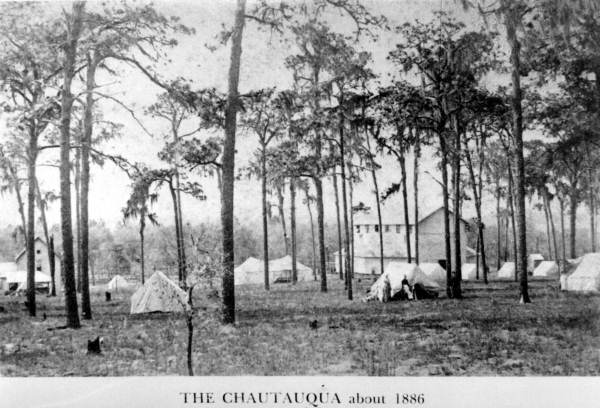
A Chautauqua hall at Mount Dora, surrounded by the tents of families attending the show (circa 1886).
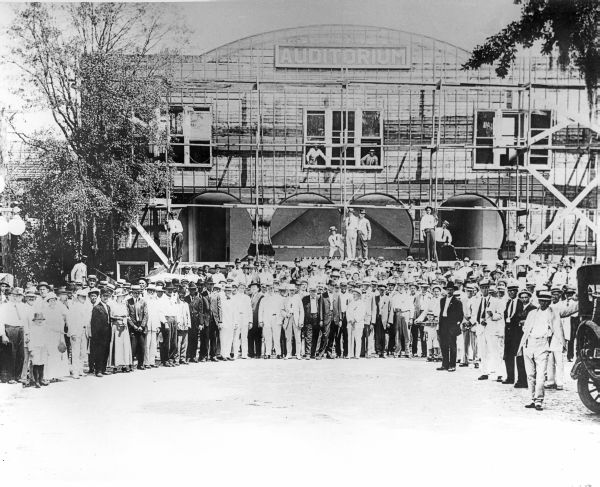
Lakeland citizens gather around their new Chautauqua auditorium. The building opened on November 6, 1912 with a capacity of about 1,700 (photo circa 1912).
In a world without the Internet, television, or even radio, this sort of cultural experience was nothing short of thrilling for many participants. Particularly good orators sometimes gained the same sort of fame enjoyed by today’s movie and television stars. Even speeches themselves could gain immense popularity. Temple University founder Russell Conwell was well-known for an inspirational speech entitled “Acres of Diamonds.” He reputedly gave the speech over 6,100 times, mostly on the Chautauqua circuit.
We still have lectures and live performances, of course, but we certainly don’t depend on them as our forebears once did. Most folks aren’t even familiar with the word “Chautauqua,” let alone its history as a way of connecting people with the world. One slight exception is the Florida Chautauqua in DeFuniak Springs, which still hosts periodic cultural events throughout the year.
Speaking of connections, Florida Memory is proud to be your gateway to the history and culture of the Sunshine State. What’s something you’ve learned on Florida Memory that you never knew before? Start a conversation by sharing this post on Facebook or Twitter.
Cite This Article
Chicago Manual of Style
(17th Edition)Florida Memory. "Chautauqua in Florida." Floridiana, 2014. https://www.floridamemory.com/items/show/295226.
MLA
(9th Edition)Florida Memory. "Chautauqua in Florida." Floridiana, 2014, https://www.floridamemory.com/items/show/295226. Accessed February 13, 2026.
APA
(7th Edition)Florida Memory. (2014, October 10). Chautauqua in Florida. Floridiana. Retrieved from https://www.floridamemory.com/items/show/295226

 Listen: The Folk Program
Listen: The Folk Program